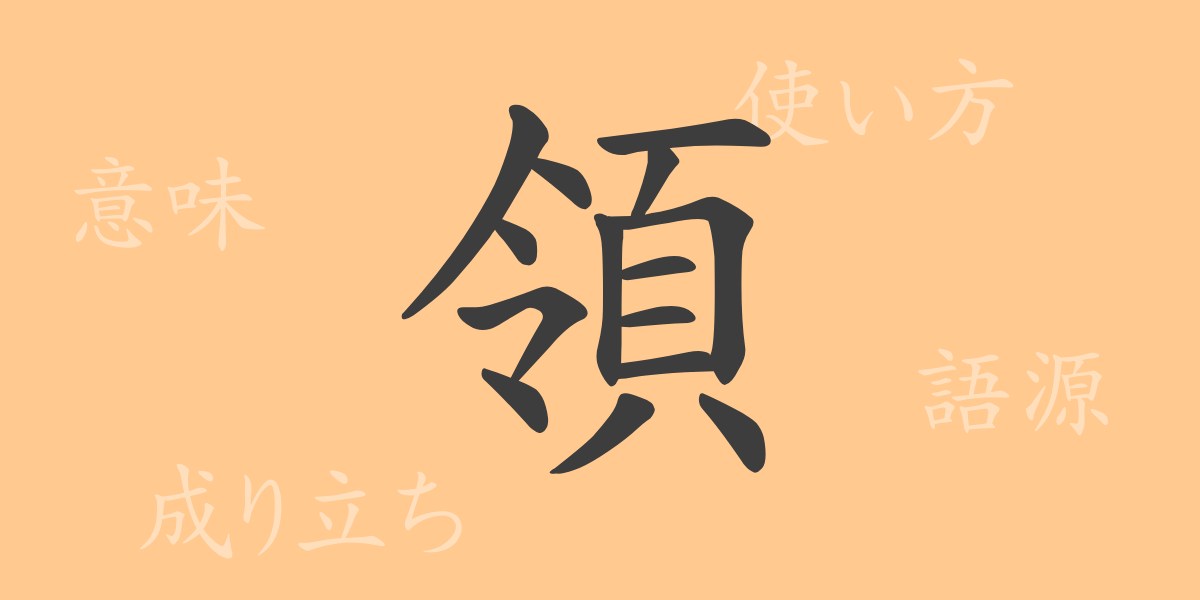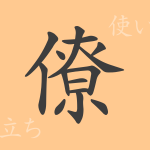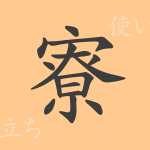The meaning embedded in a single kanji character carries a deep story within its form and history. The commonly used Japanese kanji “領” (ryou) is no exception. In this article, we will delve into the origins, meanings, usage, readings, stroke count, radical, and idioms, proverbs, and phrases that use “領” (ryou). Let’s explore the rich world each kanji character holds together.
Origins of 領 (ryou)
The kanji “領” (ryou) is a character passed down from ancient China, composed of the parts “頁” (kashira), meaning head, and “糸” (ito), meaning thread. This combination reflects the ancient rulers who wore head ornaments to signify their authority, giving rise to the meaning of “dominating a territory.” Thus, “領” (ryou) reflects the ancient power structures and social order.
Meaning and Usage of 領 (ryou)
“領” (ryou) is primarily used in terms like “領域” (ryouiki – territory), “領土” (ryoudo – land), and “領収” (ryoushuu – receipt), indicating ownership, control, or the act of receiving something. It is also used to refer to land or items owned by a country or individual, as in “領する” (ryousuru – possess), “領有” (ryouyuu – ownership), and “領地” (ryouchi – domain). Additionally, in an abstract sense, it is used to express deep understanding or realization, as in “領悟する” (ryougusuru – comprehend).
Readings, Stroke Count, and Radical of 領 (ryou)
The kanji “領” (ryou) has unique readings and writing characteristics.
- Readings: The on’yomi (Chinese reading) is “リョウ” (ryou), and the kun’yomi (Japanese reading) is “えり” (eri).
- Stroke Count: “領” (ryou) has 14 strokes.
- Radical: The radical of “領” (ryou) is “頁” (kashira).
Idioms, Proverbs, and Phrases Using 領 (ryou) and Their Meanings
There are numerous idioms, proverbs, and phrases that include “領” (ryou), each with rich meanings. For example, “領土拡大” (ryoudokakudai) means expanding a country’s or region’s control, “領収書” (ryoushuusho) is a document proving receipt, and “領海” (ryoukai) refers to the maritime area under a nation’s sovereignty. Additionally, “領袖振るう” (ryoushuufuruu) means to act as a leader, and “領悟” (ryougo) signifies deep understanding. These expressions are widely used in daily life and business contexts.
Summary of 領 (ryou)
The kanji “領” (ryou) has historically symbolized authority and control through its form and etymology. Even in modern times, it is an important character used to denote concepts like territory and domain. Additionally, in idioms and phrases, “領” (ryou) serves as a central expression in various contexts. By understanding the profound history and meaning of this single character, one can deeply appreciate the richness of the Japanese language.

























